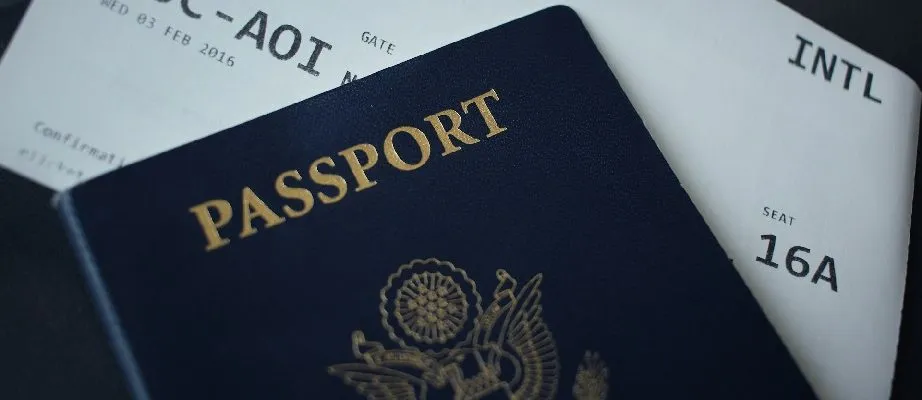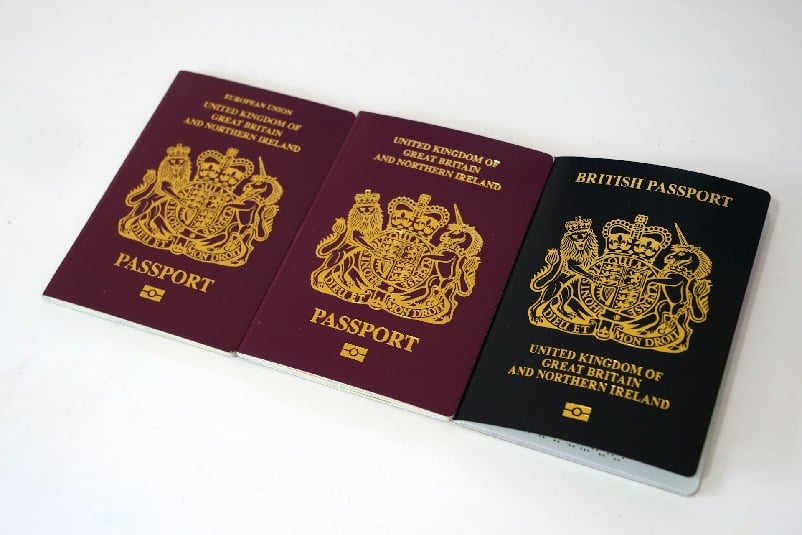Easiest Countries to Get a Work Visa
In today’s increasingly globalised world, more and more individuals and families are exploring the opportunity to work in or relocate to a new country. Many countries are now simplifying the process of obtaining a work visa, making it more accessible than ever.
If you’re considering working or relocating abroad, our team at IAS can help you. Reach out to our team today by getting in touch online or calling +44 (0)333 414 9244 to explore your options and receive expert guidance tailored to your needs.
Read our 1001 reviews
What is a Work Visa and Do I Need One?
A work visa is an official document that allows individuals to legally work in a foreign country for a specified period. In most circumstances, you will need to obtain some form of work visa or work permit to work abroad, as it ensures compliance with local immigration laws and regulations. Working without a valid visa or permit can lead to legal consequences, including deportation.
There are many different types of work visas available, and they vary from country to country. Obtaining a work visa often involves meeting specific requirements, such as having a job offer from a local employer or possessing particular skills. A work visa not only provides legal authorisation to work but also helps protect your rights as an employee in the host country.
What Factors Make a Country Stand Out as the Easiest for Obtaining a Work Visa?
The ease of obtaining visas and work visas vary significantly from country to country. Significant factors that can affect your eligibility and ease of which you can apply for and be granted a work visa abroad include:
- Having a valid job offer from a local employer
- Relevant skills and educational background
- Labour market needs in the host country
- Specific requirements of the visa category
- Complexity and duration of the application process
- Required language skills for the position
- Proof of financial means to support yourself
- The strength and recognition of your passport
- Any past criminal history that may affect eligibility.
Many countries worldwide are increasingly working to simplify the accessibility and visa processes in order to attract foreign workers to come and work in their country. Factors that make a country stand out as easy for obtaining a work visa include:
- Streamlined application processes that enhance efficiency and reduce bureaucratic hurdles for prospective immigrants
- Clear eligibility criteria that provide transparency and help applicants understand the requirements for various visa types
- Supportive government policies aimed at attracting skilled professionals and highly qualified workers to boost the economy
- High demand for labour in specific sectors, creating numerous opportunities for expats seeking career advancement
- Flexible visa options, including seasonal or temporary work permits, which cater to a diverse range of professionals
- Strong cultural ties to expatriates, fostering a welcoming environment that facilitates community building and support
- Emphasis on work-life balance, contributing to overall job satisfaction and quality of life for foreign workers
- Comprehensive integration programs for newcomers, designed to facilitate smooth transitions and promote cultural assimilation in the host country.
Top Easiest Countries to Get a Work Visa in 2025 Ranked
With a focus on promoting exciting career opportunities, a healthy work-life balance and a high quality of life, the nations collated below are working to provide a welcoming immigration process and immigration environment for a variety of foreign workers looking to explore short term seasonal work visas, to those looking to thrive in their careers in a new country.
Australia and New Zealand
Australia and New Zealand offer many working holiday visas for individuals aged 18-30 for a period of up to 12 months. These visas typically require a fee and proof of a return ticket or the ability to purchase one. Popular job opportunities are found in the hospitality, tourism, and service industries.
Additionally, Australia has a points-based system that makes it the easiest country for skilled and highly skilled workers to immigrate, particularly in engineering fields. Known for its high quality of living, Australia offers excellent health services, education, and security. With diverse landscapes and a thriving economy, especially in technology and medical sectors, it is an ideal destination for expats from English-speaking countries due to shared language and cultural similarities.
Canada
Canada is renowned for its welcoming immigration policy, including Express Entry, which attracts skilled professionals, entrepreneurs, and investors. Its multicultural environment fosters a sense of belonging, with opportunities in sectors like tech, healthcare, and natural resources.
Beyond immigration ease, Canada offers a high-performing healthcare system, stunning landscapes, and a high standard of living. Various visa options, such as work permits and the start-up visa program, further contribute to Canada being one of the easiest countries to immigrate to.
Czechia (formerly Czech Republic)
The Czech Republic is an appealing destination for job seekers and international businesses due to its strategic location and growing economy. The workforce is highly skilled, making it attractive for foreign nationals.
Work visa options include the Employee Card for specific job positions, the EU Blue Card for university graduates, the Intra-Company Employee Transfer Card for internal transfers, and a Long-term Business Visa for entrepreneurs. Many international workers find jobs in hospitality, ICT, health, and education, especially in vibrant cities like Prague.
Securing a job before arrival is recommended for obtaining an employment visa, though options exist for those entering on a tourist visa.
Ecuador
Ecuador is considered one of the easiest countries in Latin America to obtain a work visa. Ecuador boasts a diverse landscape that ranges from stunning beaches along the Pacific coast to the majestic peaks of the Andes mountains and the unique ecosystems of the Amazon rainforest.
With just a Bachelor’s Degree and $400, you can qualify for a “professional visa” that allows you to work as a freelancer. Many international workers find opportunities in international companies, the tourism sector, or NGOs (non-governmental organisations).
Estonia
Estonia stands out as one of the easiest European countries to obtain a work visa in 2024, thanks to its high application acceptance rate of 87%. This small coastal Baltic nation is becoming a digital nomad hotspot, offering a unique mix of history and innovation.
In many cases, applying for a Type D visa is the easiest approach to pursue short-term work opportunities while also considering the option of obtaining a residence permit for long term visas. To apply for a residence permit, you will need to have:
- A registered employer
- A valid work contract
- A clean bill of health.
Despite receiving fewer applications than other countries, Estonia is an attractive option for those looking to work abroad.
France
A world-famous European destination, France offers a range of accessible immigration options that make it easy to relocate as a foreigner.
For trips lasting under 90 days, the country provides a short-term work visa with flexible exemptions tailored to the nature of your work. Additionally, the ‘Travailleur Temporaire’ visa allows for working holidays of up to a year. To qualify for these programmes, a valid job contract is required, streamlining the application process.
Another significant advantage is France’s inclusive family members provisions, which grant immediate residence and work permits to your spouse and children, facilitating a smoother transition for families.
Germany
Germany boasts the largest skilled labour pool in Europe, with 42 million workers. The multicultural job market is welcoming to immigrants, highlighted by the new “opportunity card” allowing foreign nationals to seek employment without a job offer.
Visa options include the Long-Stay Visa for job offers, self-employment, freelancing, au pair positions, and the Working Holiday Visa for eligible youth. Germany’s strong economy, emphasis on work-life balance, and high living standards make it an attractive destination for expats.
Popular job opportunities exist in technology and healthcare, and the country also offers work visas for graduate students and an artist visa for self-employed individuals with a solid business plan.
Iceland
Iceland is becoming a hotspot for highly skilled professionals, offering a supportive immigration framework. To obtain a work permit, you need a signed employment contract with an Icelandic firm.
The country offers various temporary work permits, including those for expert knowledge, labour shortages, and family reunification. Iceland boasts a high average wage, flexible workweeks, and a strong emphasis on work-life balance.
Ireland
Ireland is one of the easiest countries for skilled professionals to immigrate to, with a 95% approval rating for employment visas, allowing stays of up to five years.
There are no age restrictions for visas, making it accessible for international students and recent graduates. Popular job opportunities are available in technology, pharmaceuticals, education, and hospitality, particularly in cities like Dublin, Limerick, and Cork. The welcoming culture and robust economy enhance the appeal for expats.
Latvia
Nestled in the heart of the Baltic region, Latvia offers a rapidly growing economy that attracts both skilled professionals and international businesses.
Foreign nationals wishing to work in Latvia must obtain a residence permit, a Type D visa, and a work permit, though EU nationals do not need a work permit but must apply for a residence permit for stays longer than 90 days. Immigration processing times for permits are very quick in Latvia, averaging just 10 days.
Latvia offers several work permit types: Type A for employment with a Latvian employer, C and E for intra-company transfers, D for business visits, and a Seasonal Work Visa for temporary roles. Latvia’s rapidly growing economy supports a diverse workforce, and it is part of the EU’s Blue Card scheme.
Lithuania
Lithuania is an increasingly attractive destination for immigrant workers, requiring a job offer from a local employer as the first step to relocation. Once the relevant documents are submitted, the employer handles the work permit application through the Lithuanian Labour Exchange.
Non-EU citizens can sometimes work without a permit if their job requires high-level qualifications. The work visa options include the EU Blue Card for highly skilled workers, intra-company transfer visas, and seasonal work visas.
Once granted, applicants must apply for their permits in their home country, though EU and EEA citizens can work in Lithuania by just registering of their stay with Swedish authorities.
Luxembourg
Getting a work visa in Luxembourg is quite straightforward, with options for both short-term and long-term stays. The country has the highest minimum wage and the lowest unemployment rate in Europe, making it an attractive destination for job seekers.
Visa types include the Short-stay Schengen Visa for business activities, the Long-stay National Visa for employment over 90 days, and the EU Blue Card for highly skilled professionals working longer than 12 months. The visa process is flexible and requires a job contract, with employer-led registration through the National Employment Agency (ADEM), ensuring a supportive environment for immigrants.
Malta
With its straightforward immigration process and attractive tax benefits, Malta stands out as a highly desirable and easy destination for expats seeking a vibrant Mediterranean lifestyle.
The country offers enticing tax advantages, including the Global Residence Program, Malta boasts a rich blend of history, a pleasant climate, and stunning coastlines, alongside abundant career opportunities in gaming and finance. Malta also has a Citizenship Investment Program by Naturalisation.
Netherlands
The Netherlands ranks highly among the best countries for immigration, thanks to its open-minded ethos and thriving job market, particularly in technology and engineering.
It’s relatively easy to obtain a work visa, with options like the Orientation Year visa for recent graduates and researchers, allowing them to live and work for a year without separate permits.
Entrepreneurs can benefit from the Dutch-American Friendship Treaty (DAFT), which offers minimal barriers for starting a business, granting a one-year residency to launch a venture before applying for a self-employed work permit. This makes it an attractive destination for innovators, scientists, and designers.
Singapore
Renowned for its vibrant economy and cosmopolitan lifestyle, Singapore stands as an attractive destination in Asia for expatriates seeking career opportunities and a high quality of life.
Singapore is a top contender for easy immigration, thanks to its streamlined work visa processes like the Employment Pass. As a major international trading and financial hub, it offers abundant career opportunities in sectors such as banking, technology, and logistics. The city-state is renowned for its safe, multicultural environment, efficient public services, and high-quality education and healthcare systems, making it an ideal place for expats.
With a working holiday visa available for students and recent graduates, Singapore is particularly appealing for those in IT, teaching, and hospitality fields.
Slovakia
Slovakia is becoming increasingly attractive to job seekers, with a projected 3.4% economic growth in 2023. To work in Slovakia, you typically need a single permit, which combines residency and work authorization, or a work permit linked to family reunification.
Other options include seasonal employment for roles under 180 days and the EU Blue Card for highly skilled professionals living within Europe. The single permit allows you to work based on a job vacancy reported by your future employer.
Sweden
Sweden is an attractive destination for expats due to its generous social benefits and inclusive ethos, making it one of Europe’s most attractive countries for relocation.
Known for its commitment to equality, environmental sustainability, and a thriving innovation-driven economy, Sweden offers a warm welcome to newcomers. With a strong job market, particularly in technology and engineering, the country presents numerous opportunities for skilled professionals.
For those with a job offer, obtaining a work visa is straightforward, as employers handle the application process and compliance checks. Additionally, Sweden facilitates family relocations by processing family permits concurrently, ensuring a smooth transition for those moving with loved ones.
South Korea
South Korea presents a compelling option for those seeking high-paying job opportunities in Asia. English teachers on the E-2 visa enjoy attractive salaries, particularly if they hold relevant certifications.
While teaching English is the most sought-after profession for foreigners, the country also offers working holiday and “looking for work” visas, which enable individuals to explore employment options in international corporations or the service industry. This combination of lucrative job prospects and diverse visa options makes South Korea an appealing destination for expats.
Factors to Consider Before Applying for a Work Visa
Before applying for a work visa, it’s essential that you evaluate your personal and professional factors, such as career goals, skill alignment, and family considerations.
Understanding work visa limitations is crucial, as restrictions can affect job mobility and career advancement. Assessing job opportunities and market demand in target countries helps identify viable options and ensures alignment with your qualifications.
Additionally, cultural adaptation and language proficiency play significant roles in the success of work visa applications, as they can enhance integration and workplace effectiveness. Taking these factors into account can lead to a more informed and successful immigration experience.
It is also essential to understand any limitations that might affect your chances of a successful application, such as holding a weak passport, having prior criminal convictions which may cause you to fail background checksF, or having overstayed your visa in other countries. Work visa applications undergo thorough screening, so it’s essential to ensure you meet all eligibility requirements of the destination country before submitting your application, as the process can be costly.
How Can IAS Help?
At IAS, we understand the challenges of securing a work visa in different countries. Work visa programs can be complicated to understand, and it can be difficult to know which options are best suited to you. That’s why IAS is here.
Our knowledgeable immigration lawyers are dedicated to helping you navigate all of your immigration queries, Whether you need a little advice, assistance with your applications, or legal support for an immigration issue you’re facing, we are here to help.
We can assess your individual qualifications and career goals to recommend countries that offer the most accessible work visa options. With our expertise, you can confidently navigate visa requirements, application procedures, work permits and compliance with local laws, ensuring a smooth transition to your new opportunity.
To speak with a professional immigration advisor about the easiest countries to get a work visa, contact us online or call us today on +44 (0)333 414 9244.
Table of Contents
Table of Contents will appear here.Legal Disclaimer
The information provided is for general informational purposes only and does not constitute legal advice. While we make every effort to ensure accuracy, the law may change, and the information may not reflect the most current legal developments. No warranty is given regarding the accuracy or completeness of the information, and we do not accept liability in such cases. We recommend consulting with a qualified lawyer at Immigration Advice Service before making any decisions based on the content provided.
Services we Provide
Frequently Asked Questions
Yes, specific industries actively seek foreign workers through work visas in these countries. In South Korea, the education sector, particularly English teaching, has a high demand for native English-speaking professionals to join their workforce.
Ecuador often looks for foreign professionals to join their tourism and NGO sectors. France’s hospitality and technology sectors also welcome foreign talent, reflecting diverse opportunities across various fields.
Meanwhile, in Canada, the healthcare and agriculture industries actively recruit international talent to address labour shortages in particular regions of the country, offering various work visa options for skilled professionals in these fields.
Yes, many countries on this list offer pathways for work visa holders to transition to permanent residency or citizenship, though the specific requirements and processes can vary significantly. Examples include:
- In South Korea, for example, work visa holders can apply for an F-2 visa after living in the country for a certain period, which can lead to permanent residency.
- In Ecuador, holders of professional visas may also qualify for residency after a specific period, depending on their circumstances.
- France allows work visa holders to apply for a multi-year residence permit, which can eventually lead to permanent residency.
- Malta offers a Citizenship by Naturalization program for those who have resided in the country for a specified number of years under a valid visa.
Foreign workers on work visas may encounter several challenges, especially if they don’t understand the country’s immigration system and have not planned ahead. This is why we strongly recommend that you speak with an immigration expert before making any major decisions to move abroad for work.
Once in the country, common challenges you might face include:
- Language barriers that hinder communication and integration into the local culture
- Limited job security and the potential for exploitation by employers, especially on short-term work visas
- Navigating complex immigration regulations and the renewal process for visas
- Social isolation may also be a concern, as establishing a support network in a new country can take time.
These factors should be taken into consideration before making a decision on moving to a new country.
















